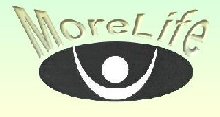

Many words and phrases used within the MoreLife and SelfSIP websites are technical scientific terms not commonly understood, are ones which have had their meanings distorted or usurped by persons biased towards certain philosophical viewpoints or are ones that we have not found to be used in English, again at least partly because of the incomplete or inconsistent philosophical basis for much of the vernacular language. Our definitions for the distorted and usurped words and phrases are an attempt to return to their consistent and unambiguous root meanings. We have coined and used those of the third class because we think they are highly descriptive and valuable to illustrate a more complete and consistent approach to the reality of human relationships.
Within any paragraph or section of text, the first usage of either type of word or phrase (technical, distorted or coined) is linked to its definition/explanation within this glossary or elsewhere.
Most of the locally defined terms in this glossary are ones that have significant and particular application to human life expansion. Many of them have one or more technical meanings within the sciences related to life expansion that are different from that of the common usage, or even within other sciences. In such cases, we have chosen to include only the meaning(s) relevant to the subject(s) covered within MoreLife. In constructing our definitions we wish to acknowledge the value of these references.
In order to prevent unnecessary duplication, we have selected several excellent sources for external definitions. However, since our usage of some terms is quite specialized and we wish to emphasize certain parts of their meanings, we often locally define terms from these dictionaries within this glossary. In addition, because many anatomical parts and various specific diseases may be of interest to the reader, links to well presented glossary information on other websites have been provided.
| vacuole unit membrane vesicle |
A closed structure, found only in eukaryotic cells, that is completely surrounded by unit membrane (normal double-walled cellular membrane) and contains liquid material (as opposed to vesicles which contain solid material). Vacuoles and vesicles transport various materials to and from the cell membrane. |
| valence electron valency |
Any of the outermost orbiting electrons of an atom. They are responsible for the bonding of atoms into crystals, molecules, and compounds. Atoms or groups can be univalent if they have only one valence electron, divalent if they have two, trivalent if they have three, etc. More detail on atoms with no valence electrons; those with s valence electrons. |
| vitamin vitamer vitamin family |
An organic substance, the source of which is food or intestinal bacteria, and which is required in minute quantities by the body for enzymatic purposes rather than as basic fuel or building blocks of body tissues. A vitamer is any of two or more chemically and metabolically related compounds that display qualitatively similar biological activity to one another with respect to the major established activities of the vitamin involved. All such compounds are collectively (and often individually) referred to as the vitamin involved, or sometimes as members of the vitamin family. However, as more investigation into the properties of individual vitamers occurs, scientists are finding that many of them possess major biological activity not held by other vitamers of the same vitamin family. |
| wax | 1) Any lipid fraction from living organisms or from crude petroleum that is a plastic substance, hard when cold, easily moulded when warm, and insoluble in water. 2) Any fatty acid ester of a long-chain monohydroxy alcohol. |
| we, our (usage of) | The creators of this website view with much concern and some abhorrence the attempt by so many writers and speakers to assume and imply that they are representing others (even all other humans) when they state their personal viewpoints. Therefore, except on the Introductory Page where the initial uses of "we" and "our" refer to all humans, on this website the terms we and our should be taken to denote only the owners of this website, namely Kitty and Paul Antonik Wakfer. |
| xenobiotic | 1) Any substance that does not occur naturally but interacts with the metabolism of any organism. 2) Of, or relating to, substances that are foreign to living systems. Compare to biotic. |
 |
 |